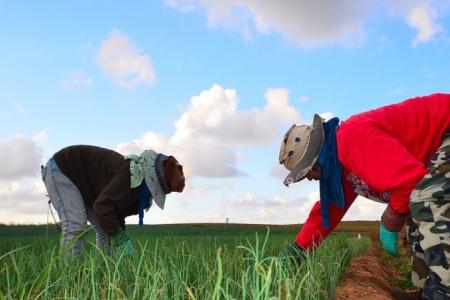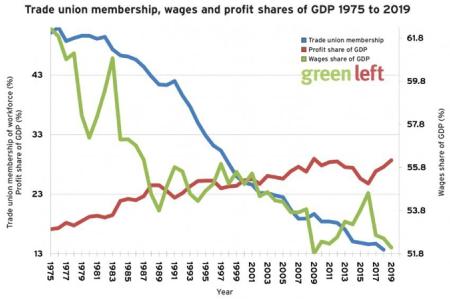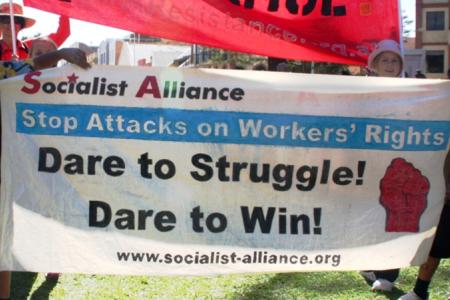Socialist Alliance candidate, Sue Bolton, has condemned the Federal Government's announcement to phase out the COVID-19 Disaster Payment once 70% and 80% vaccination targets are reached.
Workers’ Rights and Industrial
John Setka, the Victorian state secretary of the construction division of the Construction, Forestry, Mining and Energy Union (CFMEU) is again in the news as a result of allegations about family violence. One thing is clear, he should stand down.
It’s obvious that the corporate-profits-first logic is incapable of dealing with the challenge of COVID-19 efficiently or fairly.
Even though different state governments are taking slightly different approaches, the reason for this debate is that governments — state and federal — are making corporate interests a higher priority than people’s health.
Unions are rightly worried that guest workers from South-East Asia will be super-exploited by rural bosses who are used to paying sub-standard wages. The new visa is intended to allow shamefully low wages to continue.
The Socialist Alliance has some clear, specific solutions for addressing the triple crisis facing regional Australia as set out in this COVID recovery plan.
After more than a year of the COVID-19 pandemic, working people around the world have been suffering and victimized by the global capitalist system that failed to protect people’s lives and livelihood.
The squeeze on workers far predates the COVID-19 pandemic. In today’s dollars more than $4 trillion has shifted from workers’ pockets to corporate profits.
The end of the JobKeeper program on March 28 means that up to 500,000 jobs are at risk, according to Small Business Australia (SBA). Government estimates are that 150,000 jobs could go.
Some of the policies we are proposing that no other party is actively campaigning on include: land rights; net zero emissions within 10 years, bringing strategic monopolised sectors of the economy into democratic public ownership, restricting residential rent increases to the consumer price index, 30,000 new public housing dwellings in four years and; sustainable transport solutions as a better alternative to both Roe 8 and building an Outer Harbour.
No union movement in its right mind should support the isolation and potential de-registration of its strongest sector. Yet, Labor supports this and the ACTU appears to be silent.
In the midst of the global COVID-19 pandemic, Narendra Modi’s right-wing BJP government is seeking to privatise the public sector and reduce workers’ and farmers’ rights.











